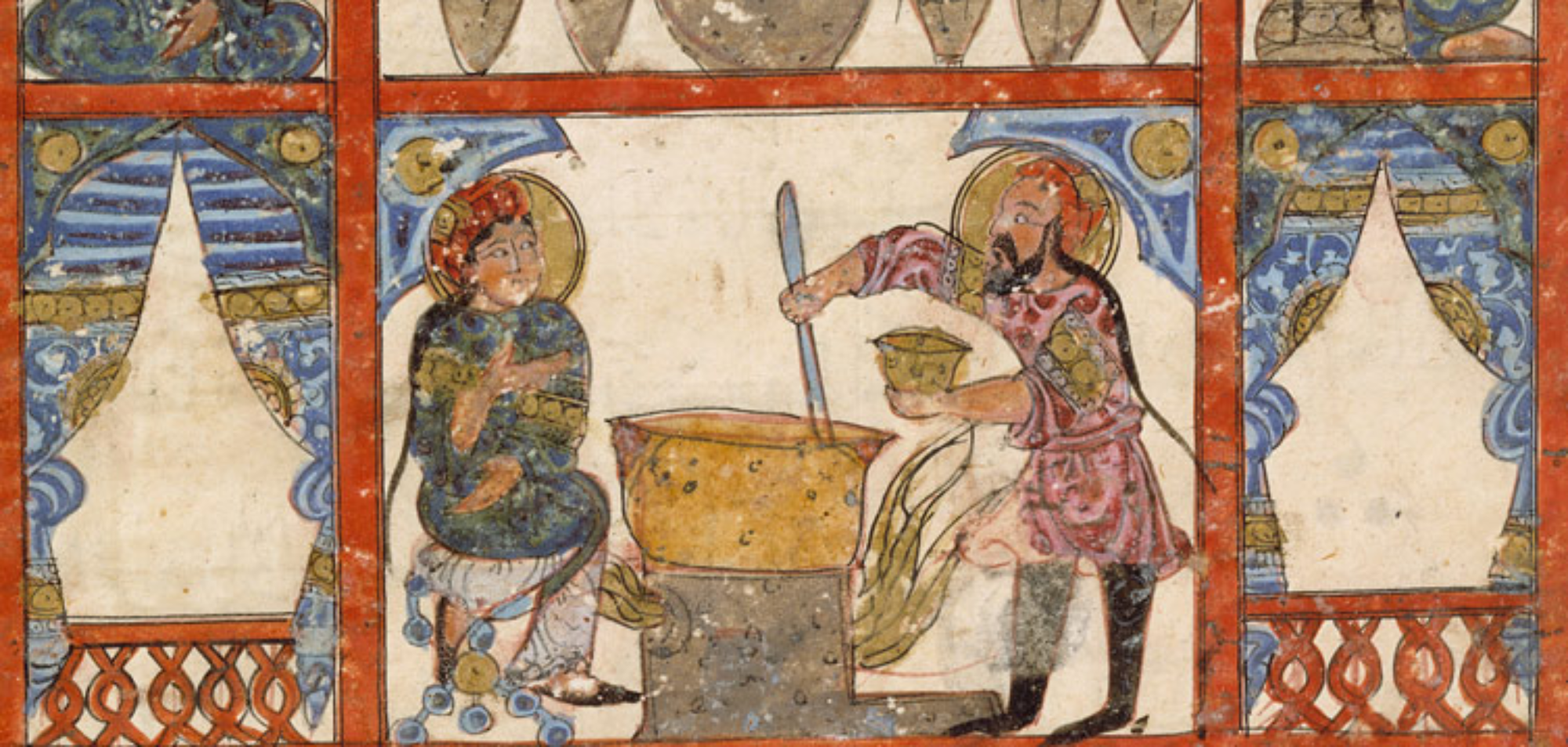The present-day Qamar al-din refers to a drink made from apricot leather (usually added with rose water), rather than the paste itself. It is a very popular drink (often associated with Ramadan) all over the Middle East, especially in Syria (its original homeland) and Egypt. In the Middle Ages, it was also used in cooking, and is specifically mentioned in a 13th-century Levantine recipe. None of the medieval Arabic culinary treatises provided instructions on how to make it, but thankfully the famous blind Christian physician Dawud al-Antaki (d. 1599) did, in his medical handbook entitled ‘Memento for the wise and a collection of marvellous wonders’ (تذكرة أولي الألباب والجامع للعجب العجاب). It is very straightforward and not different from today’s methods, except in the absence of sugar. After macerating the apricots, they are beaten into a mash, placed on boards coated with sesame oil and left out in the sun. (in case you live in a country in short supply of sunlight, a dehydrator does the trick very nicely, too!) The result, so al-Antaki tells us, should be thin sheets. [al-Antaki, 1884, I, p. 307] In Iran, it is known as the children’s favourite lavashak (لواشک) and denotes fruit rolls, made with a variety of fruits.
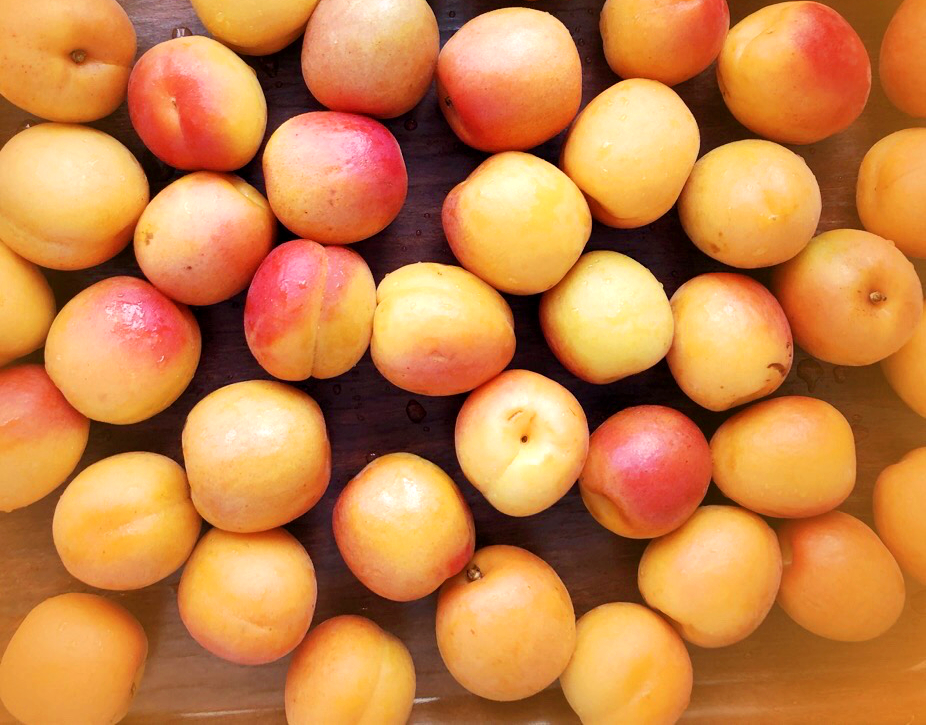
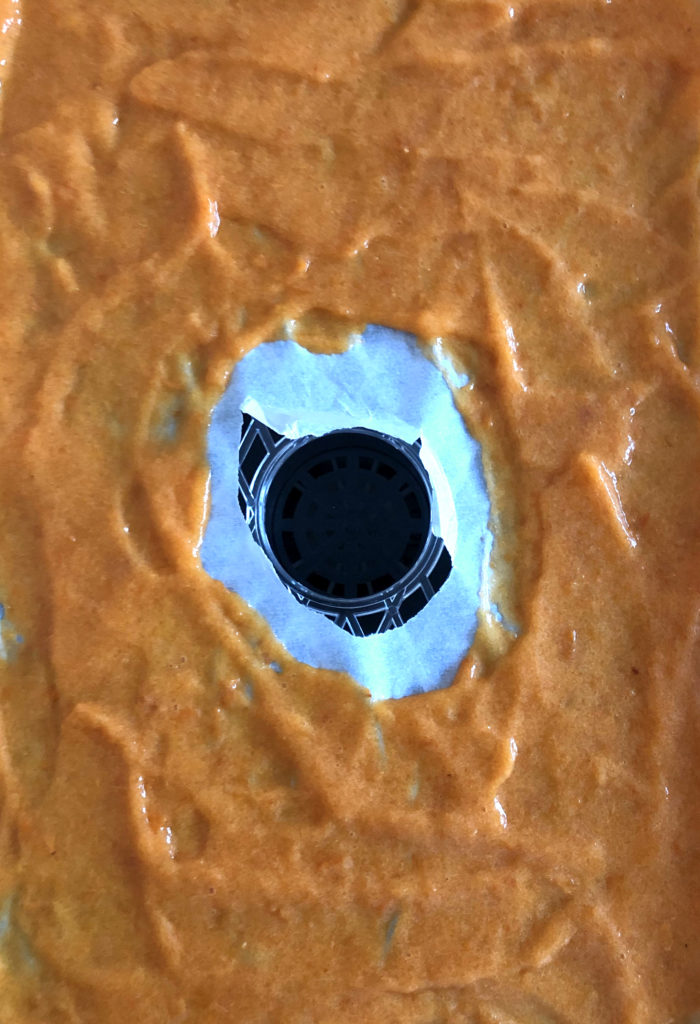
Drying the apricot paste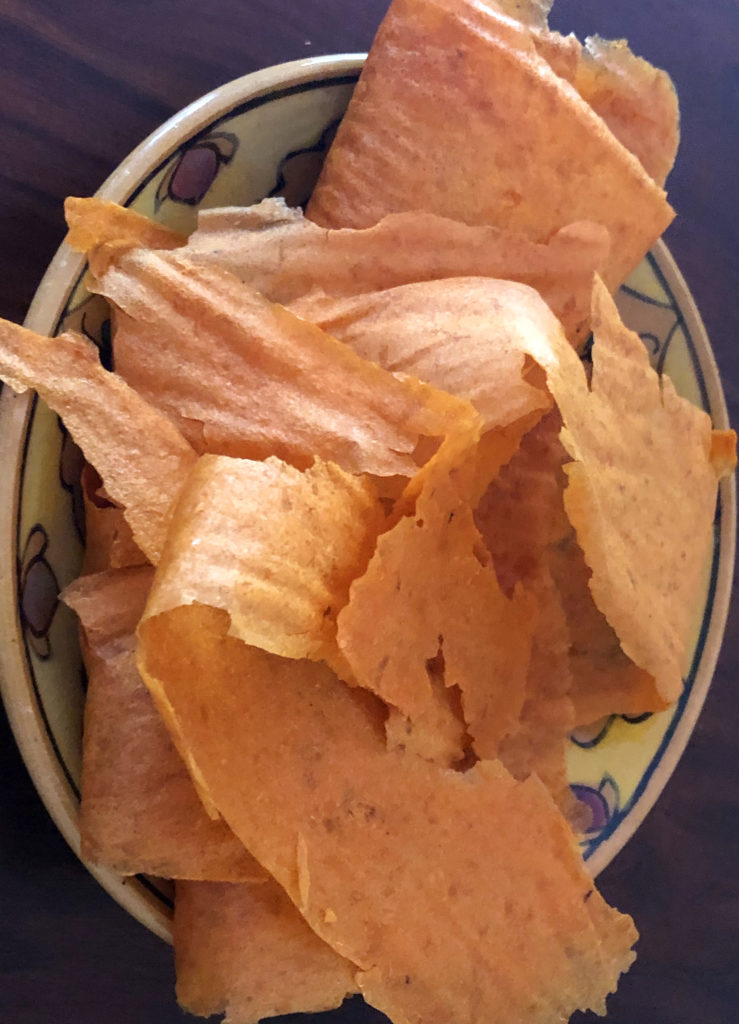
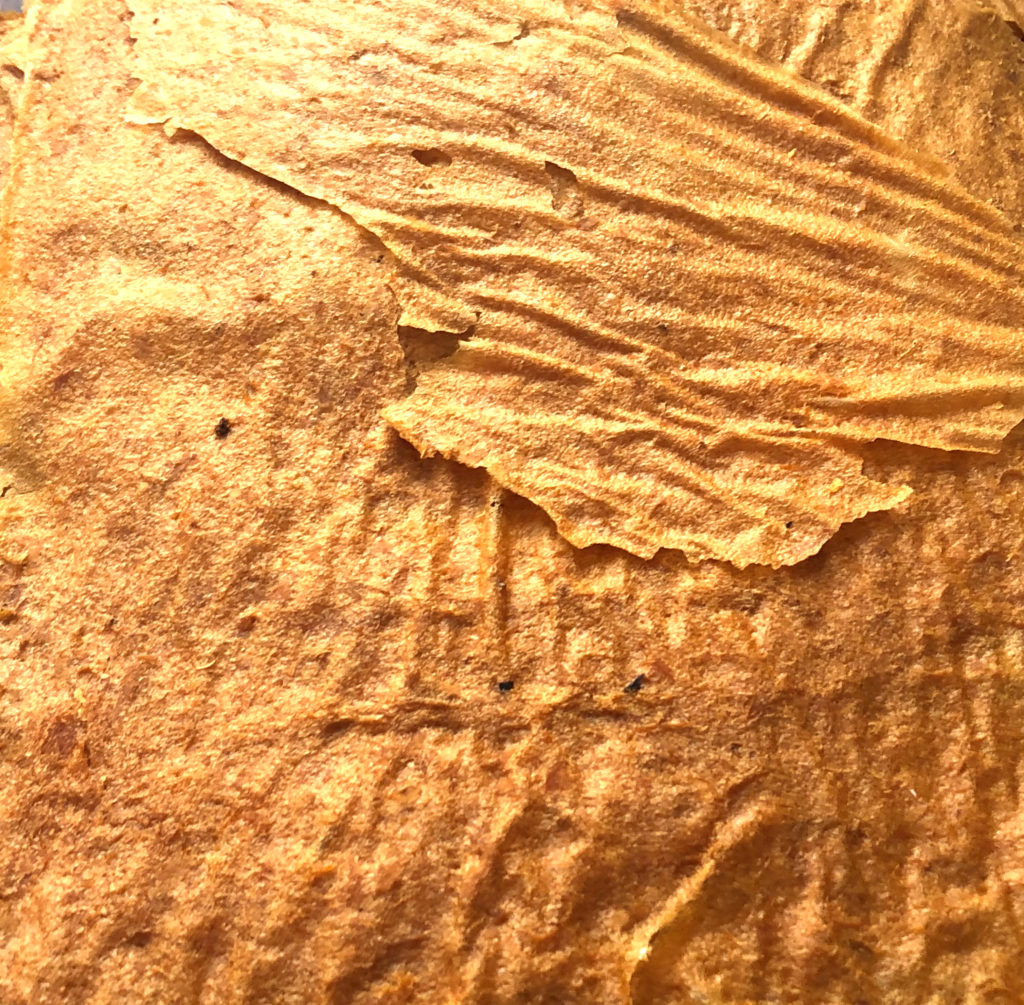
Dried sheets of apricot leather
